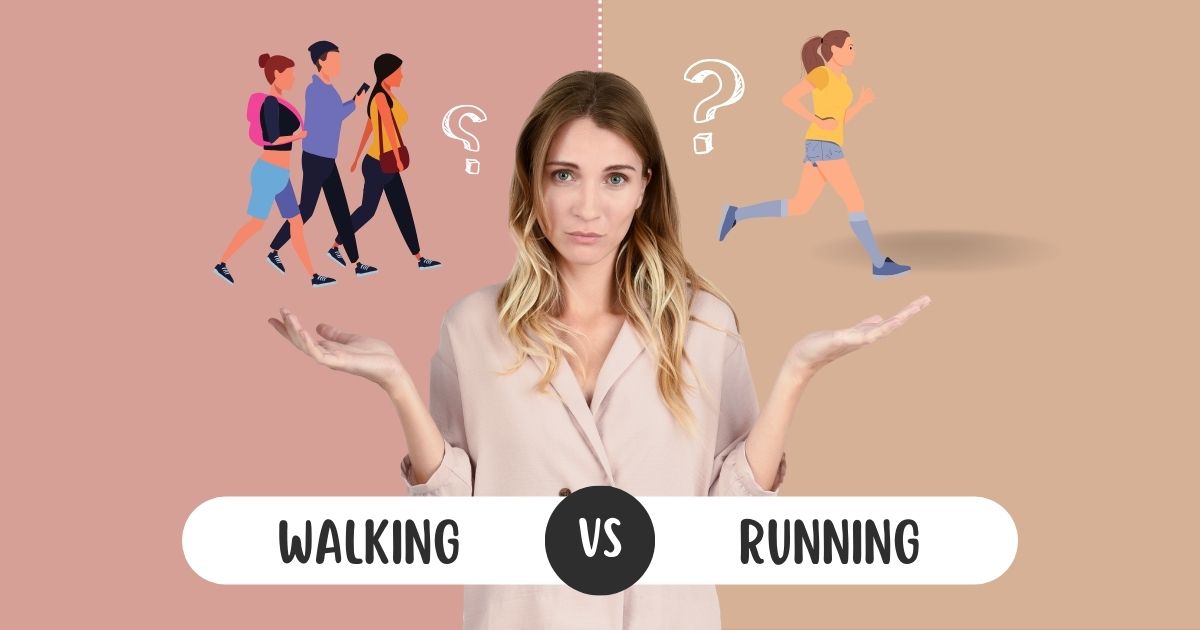When it comes to physical activities that will wake up every cell in your body walking and running are some of the best. But is one of them superior to the other? It may come as a surprise to hear than in some ways walking is better than running.
In the world of fitness, both of these are considered favorites, considered as great aerobic exercises by most fitness experts. They promote healthy weight loss, and have been shown to improve the mood as well as boosting your energy levels. On the other hand, they affect your health by regulating blood pressure and cholesterol levels, and significantly reducing the risk of heart disease, diabetes and many cancers.
Many people see walking as simply an activity that gets them from one place to the next; however it is so much more. Walking even for a short time each day helps your body heal. Also, it improves your appearance and benefits your long term health.
With each step you walk you also strengthen your cardiovascular system. In addition it increases your body’s fat burning capabilities by toning your muscles.
Walking is better than running?
Both of these activities have many benefits. However, it has been proven that in some ways walking is better than running. This comes to light when you compare the energy you need to spend on either one in order to decrease the risk of heart disease.
One of the studies that show this involved comparing the results of two separate studies for six years. Scientists monitored groups of 33, 060 runner and 15, 045 walkers between the ages of 18 and 80. At the end of the study they found that although participants in both groups spent the same amount of energy, walkers actually had greater health benefits than their counterparts.
What the numbers say
Speaking in numbers, even though running reduced the risk of heart disease by 4.5%, walkers fared much better with a reduction of up to 9.3%.
Aside from this, walking also had a much greater impact on the many factors that can contribute to the likeliness of a person developing heart disease over their lifetime.
In comparison, hypertension was reduced 7.2% by walking and 4.2% by running, and the risk of high cholesterol dropped by 7% in walkers as compared to the runners 4.3%.
Both of these activities lower the risk of diabetes by 12%.
The leader of this study was Dr. Paul Williams from the Lawrence Berkley National Laboratory in California. His conclusion was that even though both activities offer stunning health benefits due to the fact they both involve the same groups of muscles, in some respects walking is better than running. What is the cause for this difference? The intensity these activities require is the crucial factor. In order to exert the same energy while getting the same benefit; you would have to walk a little longer to get the same effect as running.
One of the best things about walking and running is that they do not cost you anything, can be done at any time and are also an excellent social activity.
When you compare the two, running is more rigorous. So, if you prefer a more relaxed approach walking is better than running for you.
Pushing too hard is harmful
The Journal of the American College of Cardiology has published a report which states that by forcing the body too hard in any physical activity can result in losing the benefits that simple walking can offer. This report was the work of a group of Danish researchers. The results showed that people who run at a fast pace more than 3 times a week for periods longer than 4 hours are actually at the same risk level as those you sit for long periods of time and do not engage in exercise. This study took place over 12 years. The results remained the same even after considering many factors. These included age, sex, medical history (heart disease and diabetes), smoking and consumption of alcohol.
People with the lowest risk were those who ran less than 2 times a week at a slow to moderate pace over the course of 1-2.4 hours. Those who exerted themselves a bit more, for 2.5-4 hours and at a faster pace showed a slight increase in their risk of death. Needless to say, these results were quite surprising.
What the studies tell us
When trying to lose weight and maintain your health a balance is what’s needed. The middle ground is what protects your heart and regulates blood sugar while at the same time burning calories.
The news that in some respects walking is better than running is great for those who don’t enjoy running. It’s great to know that walking can have such benefits.
Those who are new to exercising or have been diagnosed with certain health issues will find an amazing outlet in walking. Walking is better than running for obese people as it exposes the body to a lot less stress. Running carries a higher risk of injury as it has a very repetitive nature. Also, it’s considered a high impact exercise which carries the danger of injuring your ankle, knee and hip joints. Walking is a lot lower risk when it comes to injuries, as it is a low impact activity. Another great thing about walking is that it can easily fit into a busy work schedule. Even if you are very short on time, walking to your meeting or investing in a treadmill desk can have amazing results.
Prefer running over walking?
If you are someone who loves their early morning jog, don’t worry! By running on grass, earth, woodland trails and running tracks you can decrease the risk of injury from running. Invest in high quality shows, and always keep proper form when running. Gradually increasing the mileage can further help in this regard.
